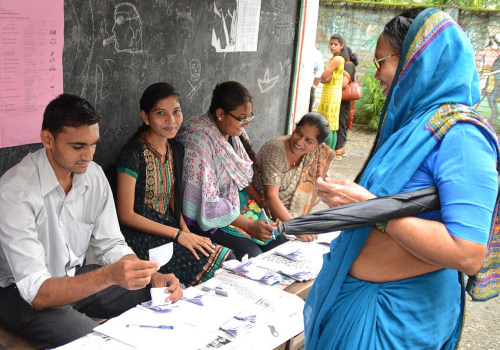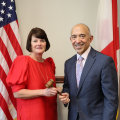Election campaigns are an integral part of the democratic process in the United States. They allow candidates to share their vision and policies with the public and give voters the opportunity to make informed decisions. However, with the rise of technology and social media, campaign advertising has become more complex and regulated. In Mobile County, Alabama, there are specific rules and regulations that govern election campaigns to ensure fairness and transparency.
The Role of the Alabama Ethics Commission
The Alabama Ethics Commission is responsible for enforcing the state's ethics laws, including those related to election campaigns.The commission's primary role is to ensure that candidates and political committees comply with the law and report their campaign finances accurately. According to the Alabama Fair Campaign Practices Act, all candidates running for public office in Mobile County must register with the Ethics Commission and file regular campaign finance reports. This includes candidates for county offices such as sheriff, probate judge, and county commissioner. Additionally, any political committee that raises or spends more than $1,000 in a calendar year must also register with the Ethics Commission and file regular reports.
Rules for Campaign Advertising
Campaign advertising refers to any form of communication that promotes a candidate or political party. This includes television and radio ads, billboards, yard signs, flyers, and social media posts. In Mobile County, all campaign advertising must include a disclaimer stating who paid for the ad. This disclaimer must be clearly visible or audible and must include the name of the candidate or political committee responsible for the ad. Furthermore, all campaign advertising must be truthful and not contain any false or misleading information.Candidates are also prohibited from making any defamatory statements about their opponents. It is important to note that campaign advertising rules also apply to online platforms such as social media. Candidates and political committees must include the same disclaimer and adhere to the same standards of truthfulness and fairness in their online ads.
Limitations on Campaign Contributions
In Mobile County, there are limits on the amount of money individuals and organizations can contribute to election campaigns. These limits are set by the Alabama Fair Campaign Practices Act and are intended to prevent corruption and undue influence. For example, individuals can only contribute up to $1,500 per election cycle to a candidate for county office. Political action committees (PACs) can contribute up to $5,000 per election cycle, while corporations and labor unions are prohibited from making any contributions. It is also important to note that candidates cannot accept contributions from foreign nationals or government contractors.Any contributions that exceed the legal limits must be returned or donated to a charitable organization.
Reporting Requirements
In addition to registering with the Ethics Commission and filing regular campaign finance reports, candidates and political committees in Mobile County must also adhere to other reporting requirements. For example, any contribution of $100 or more must be reported within 48 hours. This includes both monetary and in-kind contributions. Candidates must also report any loans they receive for their campaign within 48 hours. Furthermore, all campaign finance reports must be filed electronically with the Ethics Commission. This allows for greater transparency and easier access for the public to view the financial activities of candidates and political committees.Enforcement of Campaign Advertising Rules
The Alabama Ethics Commission has the authority to investigate any complaints related to campaign advertising violations.If a violation is found, the commission can impose fines and penalties on the candidate or political committee responsible. In addition, the commission can also refer cases to the Alabama Attorney General's Office for further investigation and potential criminal charges.






